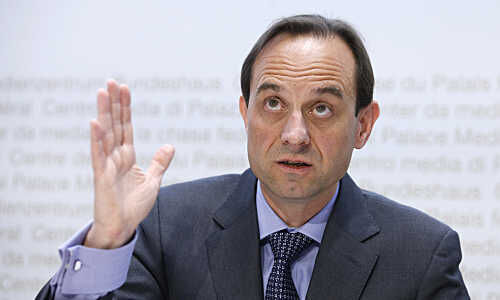Switzerland's financial regulator stress-tested the country's two major banks by simulating a second pandemic wave – which has since become reality.
Unusual tones from Mark Branson, Finma's long-time chief, who on Wednesday lauded Switzerland's largest banks for their handling of the pandemic-induced economic crisis. «Operationally, the banks performed brilliantly this spring,» Branson told journalists during a briefing on an annual risk reading.
In fact, financial market participants are even better equipped to cope with fallout than at the beginning of the first wave of coronavirus, which hit Europe in March, Branson said. He referenced stress tests in recent months at the largest Swiss lenders.
Pretend Comes To Life
Supervisors simulated an unfavorable scenario which has quickly become reality: for a second wave of the pandemic to hit Switzerland. The resurfacing of the virus is sparking calls for another raft of emergency measures to prop up the economy and small business, following a 40 billion Swiss franc ($44 billion) bazooka in March.
The property market as well as banks' mortgage books held up surprisingly well during the test, Branson noted. Financial markets had also been supportive – a tumble at the outbreak of the crisis in March hasn't repeated itself. He pinpointed persistently low to negative interest rates as well as massive state interventions to prop up economies.
Not Escaping Unscathed
«We expected a far worse 'adverse' scenario this summer» in the stress test, Branson said. Frequently due to favorable trading revenues, banks were able to further pad their capital. «Banks should be able to cushion the shock of future losses,» he said.
To be sure, Branson doesn't expect the lenders to escape the second wave unscathed: panic reactions on money markets, for example, could smart, he said. During March, companies rushed for liquidity, especially in the U.S. dollar market.
«Junky» Bank Risks
In Switzerland, banks also hoarded liquidity, as finews.com reported in April. The frozen money market didn't thaw until central banks – notably the U.S. Federal Reserve – swamped the market with cheap funding.
Finma pinpointed a new risk in its monitor related to foreign credit markets: because of negative interest rates in Switzerland, domestic insurers have wandered into riskier bonds for returns. These less solvent so-called junk bonds are particularly at risk of default in a renewed economic crisis, Finma noted. Banks are at risk as issuers and distributors of the instruments, he added.
Commodities Troubles
Swiss banks took hits on corporate loans during the first wave of the pandemic, especially in commodities. The two Swiss giants have taken a combined 500 million Swiss francs ($547 million) in defaults in the segment since the crisis outbreak; BNP Paribas swung to a hefty net loss and UBS emerged as the victim of a Singapore fraud.
«We'll see more impairments and defaults,» Branson warned on Wednesday. «We just don't know when and where yet.»




































